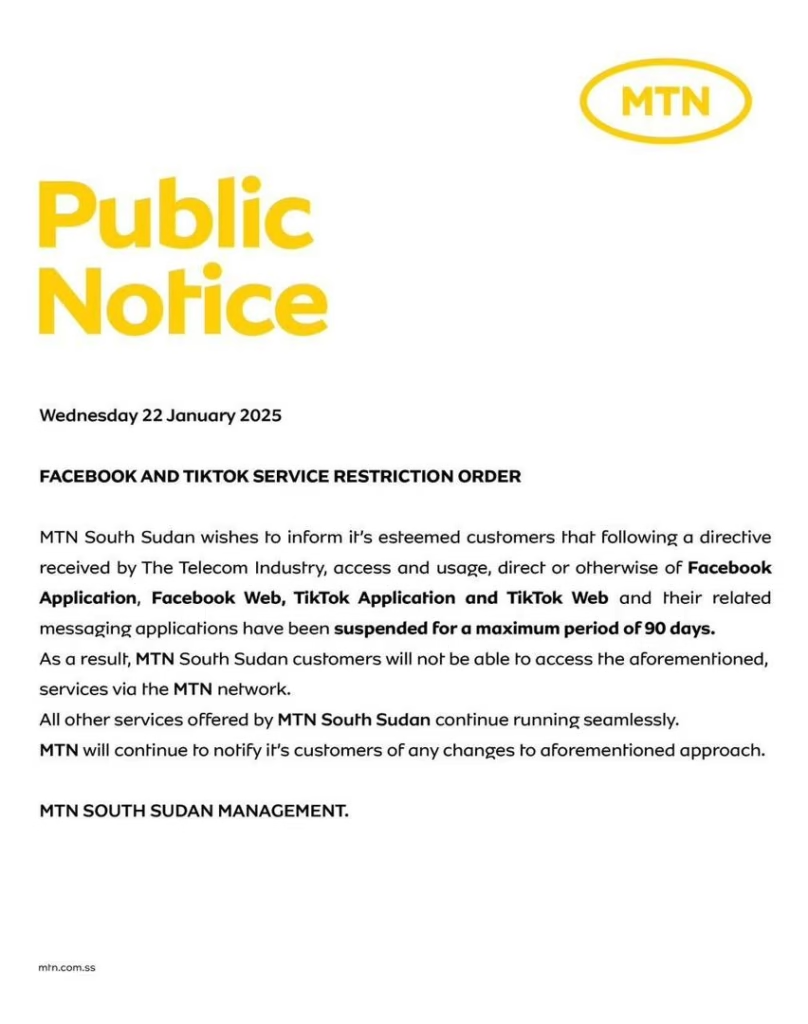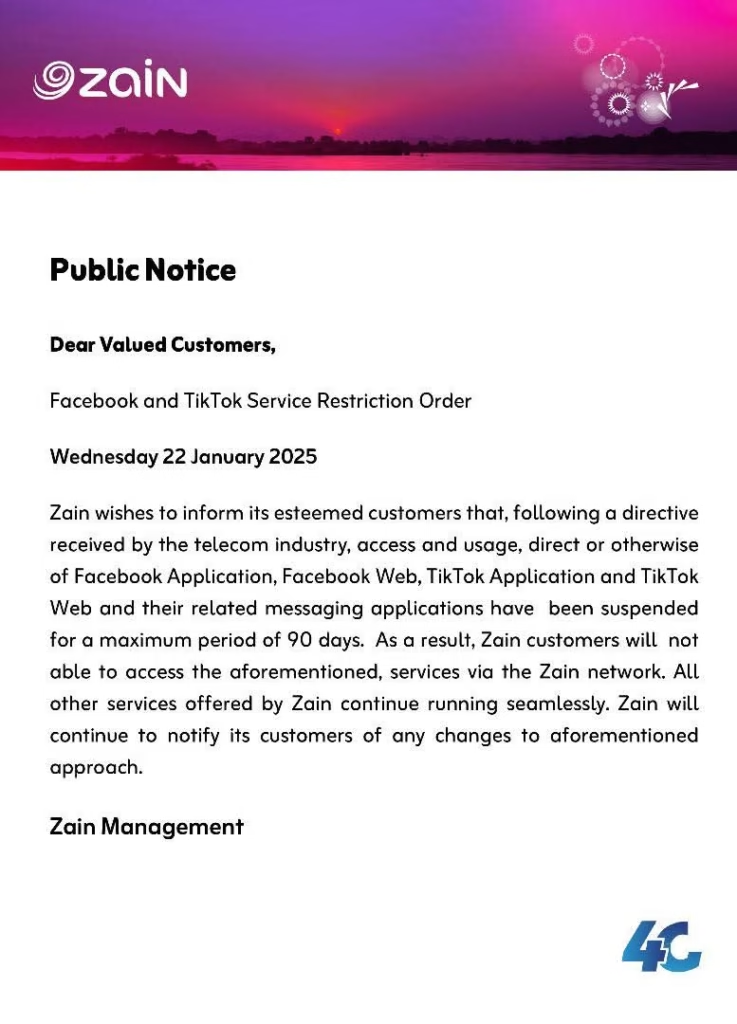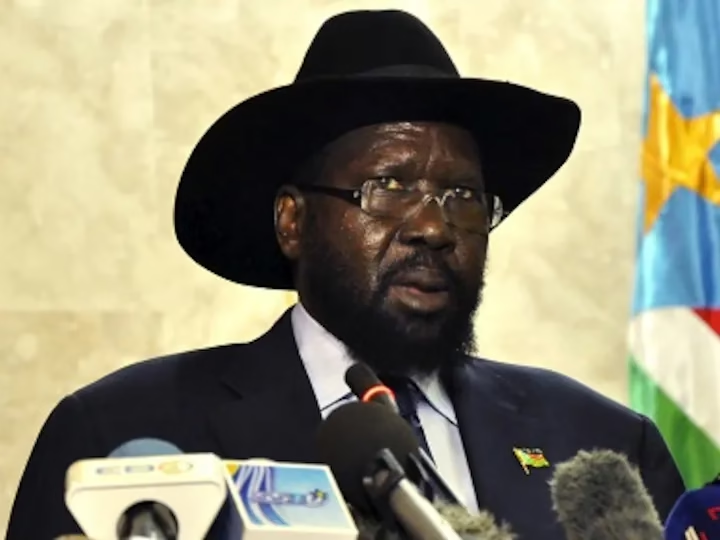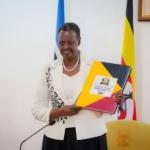South Sudan has ordered internet service providers to block access to popular social media platforms, including Facebook and TikTok, for up to 90 days. This decision, announced on Wednesday, January 22, by the National Communication Authority (NCA), comes in response to concerns over violent content shared on social media related to the ongoing conflict in Sudan.
In the directive signed by NCA Director Napoleon Adok Gai, the authority expressed alarm at the unprecedented levels of violence reaching South Sudanese citizens through social media. The NCA highlighted disturbing videos showing violent attacks on South Sudanese refugees in Wēd Medan, a Sudanese settlement. These videos, which depict the deaths of women and children, have been widely shared online.
“This content, often shared without regard for the victims’ dignity, violates our laws and poses a serious threat to public safety and mental well-being, particularly for vulnerable groups,” said Mr. Gai in the statement.
The block on social media platforms is effective immediately, starting at midnight on January 22. The move was made under the provisions of Sections 9(g)(f) and 34(6) of the National Communication Act, 2012, which grants the government the authority to regulate online content in order to maintain public safety.

Major telecom providers, including MTN South Sudan and Zain South Sudan, have confirmed their compliance with the directive. Both companies issued statements informing their customers that access to Facebook and TikTok, along with their related messaging applications, will be suspended for up to 90 days.

“MTN South Sudan wishes to inform its valued customers that, in compliance with the directive from the telecom authorities, access to Facebook, TikTok, and associated services has been blocked for a period of up to 90 days,” said MTN South Sudan in a statement. Zain South Sudan echoed this message, confirming that the suspension applies to both mobile and web versions of the social media platforms.
South Sudan is not alone in facing this challenge. Across Africa, governments have increasingly resorted to blocking social media in response to political or social unrest. In 2021, Uganda’s president ordered a suspension of Facebook during elections due to concerns over misinformation and online political discourse.
Other African countries, such as Burundi, Cameroon, Equatorial Guinea, Gabon, Gambia, Guinea, Togo, Tanzania, Benin, DRC, Malawi, Mali, Mauritania, and Sierra Leone, have also restricted social media access during elections or times of political instability.
Gabrielle Racai, Communications Manager at Surfshark, notes that “social media has become a significant political force. As its influence grows, governments are increasingly introducing measures to control or restrict access, citing security and public order concerns.”
Research from the privacy protection company Surfshark reveals that at least 27 African nations have blocked or severely limited social media access over the past five years, particularly in response to elections, protests, and social unrest. The practice of cutting off social media access has become a recurring measure for governments seeking to manage political dissent, election-related tension, and civil unrest.
.



